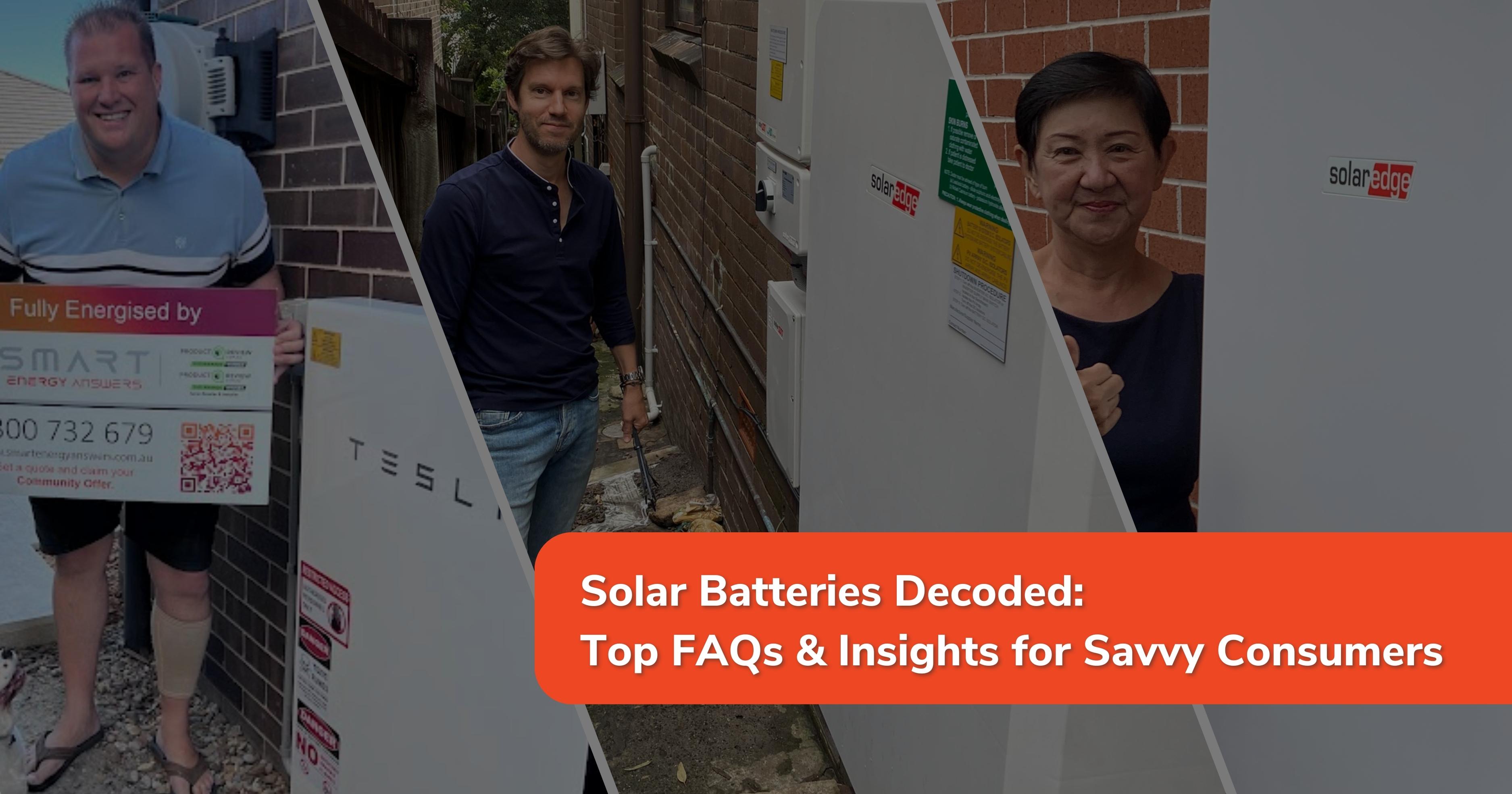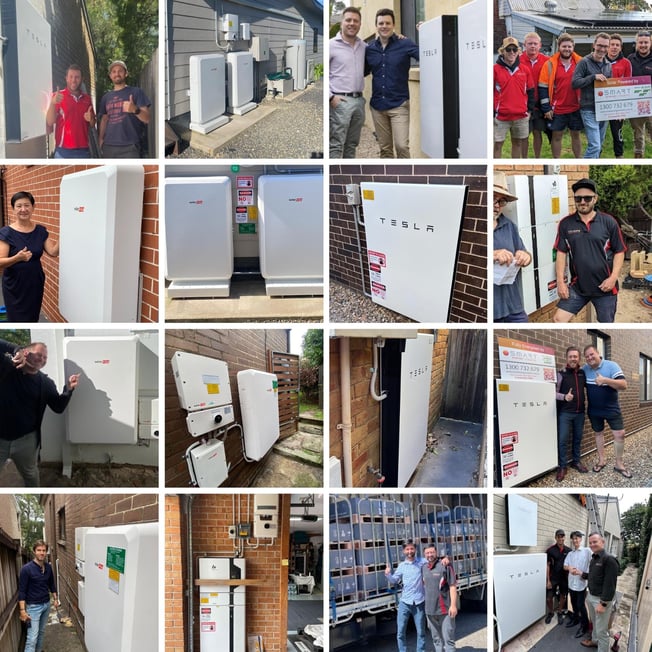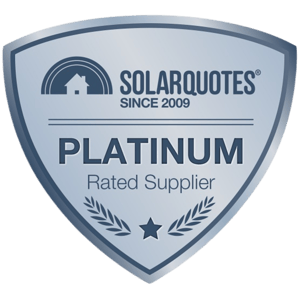Solar Batteries Decoded : Top FAQs & Insights for Savvy Consumers

In an era where sustainability meets innovation, the demand for solar with batteries has increased exponentially. More and more families in Australia want to use cleaner energy and be more in charge of their power, and that's why solar batteries are becoming so popular. At Smart Energy Answers, we're excited to explain all about solar batteries in this blog and we're here to share some of our customers' top questions to assist you in making informed decisions.

Solar batteries offer potential savings on electricity bills by capturing surplus energy produced by your solar panels in sunny periods. This stored energy becomes accessible during less sunny hours, including nights, rainy days, and cloudy weather. By decreasing reliance on grid power during peak periods, you effectively cut down on costly electricity expenses, leading to reduced overall electricity costs and become energy independent.
With a proper sized system with solar and batteries customers can aim to pay $0 on their bills.
Yes, there are incentives available in different States and in addition to that our Partners are also offering special VPP (Virtual Power Plant) rebates for specific networks and territories.
The size of the solar battery you need for your home in Australia depends on factors such as the following:
- Energy Consumption: Understand your household's daily energy consumption. Look at your past electricity bills to gauge how much energy you use on average. A larger battery might be suitable if you have higher energy needs.
- Solar Panel System Size: The capacity of your solar panel system matters. A larger system can produce additional surplus energy, which can then be stored in the battery
- Usage Patterns: Consider when you use the most electricity. If you typically consume more energy in the evening, a larger battery can help you rely less on grid power during those times.
- Grid Connectivity: If you're aiming for energy independence and want to reduce grid reliance, a larger battery could be beneficial. Smaller batteries are often used for backup power during outages.
- Budget: Larger batteries tend to be more expensive. Balance your energy needs with your budget constraints to find the right size that offers the best value.
- Future Expansion: If you plan to expand your household or increase energy usage in the future, factor in potential changes when selecting the battery size.
It's recommended to consult with a solar energy expert to determine the optimal battery size that aligns with your specific household's needs and usage patterns.
-
Capacity: Choose a battery with sufficient capacity to meet your energy needs. Refer to FAQ 3.
-
Efficiency: Look at how efficiently the battery stores and releases energy. Higher-efficiency batteries can save more of the energy generated by your solar panels.
-
Installation and Compatibility: Ensure the battery is compatible with your existing solar panel system and inverter. Consider installation requirements, space, and placement options.
-
Scalability: If you plan to expand your solar system in the future, choose a battery that can be easily integrated with additional panels.
-
Warranty and Support: Research the manufacturer's reputation, warranty terms, and customer support. A reliable warranty can provide peace of mind.
-
Cost and Value: Balance the upfront cost of the battery with the potential savings it can offer over its lifetime. Consider any available government incentives or rebates.
-
Safety: Battery safety features are crucial. Look for batteries with built-in protection against overcharging, overheating, and other potential risks.
-
Smart Features: Some batteries come with smart management systems that optimize energy usage and enable remote monitoring and control for additional revenues on VPPs (Virtual Power Plants)
-
Brand & Installer Reputation: Opt for well-established brands and installers known for quality and reliability. Check for customers’ product and service reviews from reputable websites.
Yes, lithium-ion batteries are often considered the best choice for residential solar systems in Australia due to their high energy density, efficiency, long lifespan, and compact size.
Solar batteries typically last around 15 to 25 years in the Australian climate. Factors such as the battery chemistry, usage patterns, maintenance, and manufacturer quality can influence their lifespan. Regular maintenance and proper usage can help extend the life of solar batteries. In addition, manufacturers typically offer a warranty of up to 15 years.
No, it's not always necessary to have an existing solar panel system to install solar batteries in Australia. While many people choose to combine solar panels with batteries to maximize energy self-sufficiency, you can also install a solar battery system on its own. However, if you don't have solar panels, the battery will primarily charge from the grid, and its effectiveness in reducing electricity bills might be limited compared to when it's paired with solar panels. It's recommended to consult with experts to determine the most suitable setup based on your energy needs and goals.
-
Energy Generation: During sunny hours, your solar panels generate electricity from sunlight. Any excess energy not immediately used in your home is sent back to the grid.
-
Energy Consumption: When your home's energy demand exceeds what your solar panels are producing (at night or during cloudy periods), you draw electricity from the grid.
-
Battery Charging: If you have a solar battery system, excess energy generated by your solar panels can be stored in the battery instead of being sent to the grid. This energy can be used later when the sun isn't shining.
-
Battery Discharging: When your solar panels aren't producing enough energy, or during peak usage times when electricity costs are higher, you can draw energy from your battery instead of the grid.
-
Feed-In Tariffs: If your battery is fully charged, and your home's energy demand is low, any surplus energy generated by your solar panels can be fed back to the grid. You might receive feed-in tariffs or credits for this exported energy.
-
Smart Grid Support: In some cases, grid-connected solar batteries can also provide support to the grid during periods of high demand or stress, if they are part of VPPs (Virtual Power Plants). This is known as grid balancing and can be very attractive for homeowners, generating an additional income which can lead to positive electricity bills, where you retailer will send you a cheque, instead of you paying for electricity.
Yes, you can sell excess energy from your solar battery back to the grid in Australia. This process is known as "exporting" energy or participating in a feed-in tariff program, and the concept of virtual power plants (VPPs) plays a significant role in this process. A virtual power plant is a network of residential solar and battery systems that are connected and managed collectively to provide benefits to both homeowners and the electricity grid. Yes, in Australia, you can sell excess energy from your solar battery back to the grid, and the concept of virtual power plants (VPPs) plays a significant role in this process. Keep in mind that virtual power plants and their offerings can differ based on your location and the energy company you're connected to.
Yes, there are limits to the size of the solar battery you can install in a grid-connected system in Australia, although these limits can vary based on factors such as state regulations and the policies of your local energy distributor. Before installing a solar battery system, it's advisable to consult with a professional solar installer and check the guidelines set by your state's energy regulator or authority. They can provide information on any size limitations, technical requirements, and policies that might affect your grid-connected solar battery installation.
Empower Your Energy Independence with Solar Batteries
We hope that our comprehensive FAQ guide has shed light on the exciting world of solar batteries and provided you with the knowledge needed to make informed decisions about your energy future. As you embark on this journey towards cleaner, more sustainable energy practices, remember that the right solar battery system can transform the way you power your home.
If you need more information, download our FREE Battery Handbook. This resource dives deeper into battery technology giving you a well-rounded understanding of what solar batteries can offer.
You may also reach out to one of our energy experts if you find yourself seeking personalized guidance tailored to your unique situation.. With their wealth of knowledge and experience, they can assist you in selecting the perfect solar battery system that aligns with your energy goals and budget.
%20(1).png?width=265&height=96&name=www.smartenergyanswers.com.auhs-fshubfsSmart%20Energy%20Answers%20Logo%20(HIRES)%20(1).png)

.png?width=514&height=121&name=Tesla%20Powerwall%203%20(new).png)







